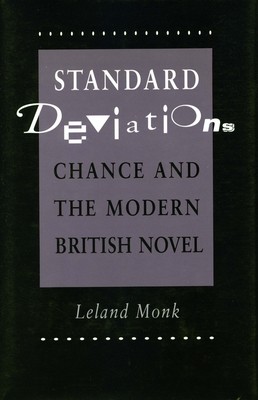
- We will send in 10–14 business days.
- Author: Leland Monk
- Publisher: Stanford University Press
- ISBN-10: 0804721742
- ISBN-13: 9780804721745
- Format: 14 x 21.6 x 1.6 cm, hardcover
- Language: English
- SAVE -10% with code: EXTRA
Reviews
Description
Analyzing works by George Eliot, Joseph Conrad and James Joyce, the author offers a new approach to narrative theory by showing how successive generations of novelists have used ever more powerful concepts of chance even though, he argues, chance is precisely what narrative cannot represent, since when it tries to do so it slips into the fated. He also relates the novelistic treatment of chance to important historical currents in the philosophical and scientific understanding of chance, and provides a theoretical framework for analyzing the representation of chance in any narrative. The author asks three central questions: Why did British novelists become intensely interested in chance in the late nineteenth century? Why and how did they thematize it in their fiction? How did the novelistic treatment of chance contribute to innovations in narrative form?
EXTRA 10 % discount with code: EXTRA
The promotion ends in 17d.04:22:12
The discount code is valid when purchasing from 10 €. Discounts do not stack.
- Author: Leland Monk
- Publisher: Stanford University Press
- ISBN-10: 0804721742
- ISBN-13: 9780804721745
- Format: 14 x 21.6 x 1.6 cm, hardcover
- Language: English English
Analyzing works by George Eliot, Joseph Conrad and James Joyce, the author offers a new approach to narrative theory by showing how successive generations of novelists have used ever more powerful concepts of chance even though, he argues, chance is precisely what narrative cannot represent, since when it tries to do so it slips into the fated. He also relates the novelistic treatment of chance to important historical currents in the philosophical and scientific understanding of chance, and provides a theoretical framework for analyzing the representation of chance in any narrative. The author asks three central questions: Why did British novelists become intensely interested in chance in the late nineteenth century? Why and how did they thematize it in their fiction? How did the novelistic treatment of chance contribute to innovations in narrative form?


Reviews